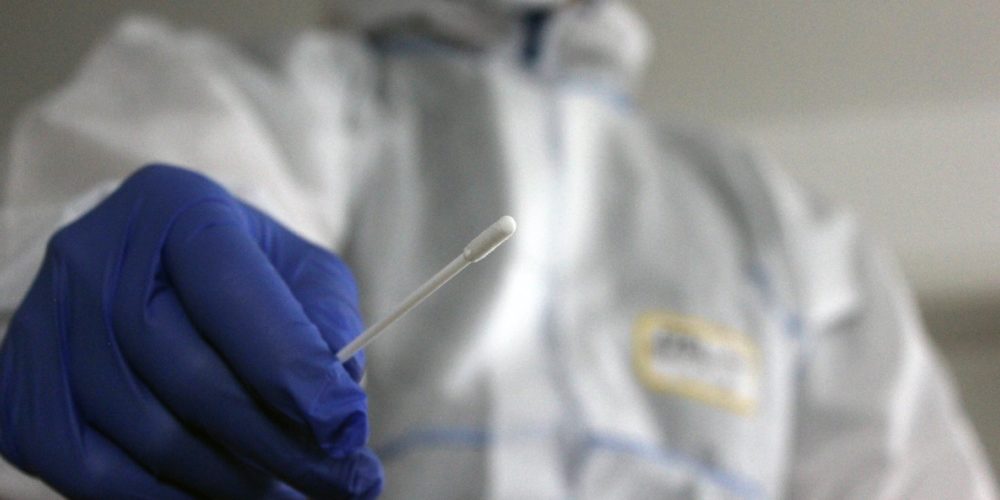
What Does the CDC Say about the Delta Variant?
Viruses are constantly changing through mutation, which leads to new variants of viruses appearing. While some variants persist and spread, others mutate and dissipate rather quickly. In the United States and in other countries throughout the world, the Centers for Disease Control (CDC) and World Health Organization (WHO) are tracking the occurrence and rise of various COVID-19 variants. Most recently, we’ve been seeing the rise in Delta variant cases, which was first identified in India in December of 2020.
This article will explore what the Delta variant is, how it differs from the original virus, and how to minimize your risk of contracting the Delta variant.
What is the Delta Variant?
The Delta variant is a genetic variant of SARS-CoV-2, the original virus strain of COVID-19. Viral mutations are expected and not an instant cause for concern. However, some variants are classified as Variants of Concern because there is evidence that these variants are more transmissible, cause more severe symptoms, or reduce the effectiveness of treatments or vaccines. As of August 3, 2021, the CDC has identified four Variants of Concern: Alpha, Beta, Delta, and Gamma.
According to the CDC, the Delta variant is highly transmissible. As such, the Delta variant incubation period may be shorter than the original strand, with some early, pre-printed reports indicating that the Delta variant may be detectaible four days after exposure, compared to an average of six days with the original strain.
Since early July 2021, Delta variant cases have become the most common variant in the United States, but these numbers may change quickly as new mutations occur.
As more variants occur and the number of COVID-19 cases is on the rise, the CDC has altered its masking policy to recommend that everyone, regardless of vaccine status, wear a mask indoors to help prevent the spread of the virus.
How to Test for the Delta Variant
COVID-19 tests can determine if an infected individual has contracted COVID-19, no matter what variant they have. However, because the protein structure of the Delta variant has mutated from the original SARS-CoV-2, current COVID-19 tests cannot determine if an individual has the Delta variant—only if they have COVID-19.
To determine if an individual has contracted the Delta variant, or other variants, a special type of test called a genomic sequencing test is required. The CDC and other public health experts are monitoring genomic sequencing testing for new and emerging variants.
Delta Variant Symptoms
Generally speaking, Delta variant symptoms are expected to be similar to that of other COVID-19 variants. According to the CDC, Delta variant symptoms include: fever or chills, cough, shortness of breath, difficulty breathing, fatigue, muscle or body aches, headache, new loss of taste or smell, sore throat, congestion, runny nose, nausea, vomiting, or diarrhea.
However, there have been some reports of differing symptoms. Cough and loss of smell may be less common with the Delta variant and fever, headache, sore throat, and runny nose may be more common. It is unclear, however, exactly how common these differing symptoms are.
Does the Vaccine Protect Against the Delta Variant?
No vaccine is 100% effective. However, when looking at the Delta variant, the COVID vaccine does still offer protection. While studies have indicated that vaccine effectiveness is slightly lower with the Delta variant, it may still be effective up to 88% of the time. Nonetheless, there is some evidence to suggest that the Delta variant may be transmissible amongst vaccinated individuals, which is why the CDC has updated its masking recommendations to include masking indoors regardless of vaccine status.
It is important to note that unvaccinated individuals remain most at-risk of contracting the Delta variant as the vaccine is still shown to be effective. While the Delta variant death rate has not been identified by the CDC in the United States, one early study showed that unvaccinated individuals with the Delta variant were more than twice as likely to require hospitalization.
Keep in mind that these studies are ongoing and this information is being determined in real time, so effectiveness rates may change as new information comes to light.
BioCollections Worldwide: COVID-19 Testing you can Trust
As COVID-19 cases ramp up, it is important to find a COVID-19 testing provider who can get you your results quickly and differentiate between the different variants. At BioCollections, our average turnaround time for test results is just 11 hours and we screen for the Delta variant at no additional cost. For more than twenty years, we’ve been on the front lines of developing accurate medical tests. With several locations in the United States and internationally, we can provide quick and convenient COVID-19 testing to get you the peace of mind you need.

Not sure if Sixto still is part of Bio Collections, however if he is please let him know this personal message. I am still living in Idaho. I still have not >Tried Treatment< for the Hep. -C Genotype 4. < I also learned a flu shot can sure mess a person up.. Also I did get Covid and I did not care if I lived.. Very Bad Stuff..